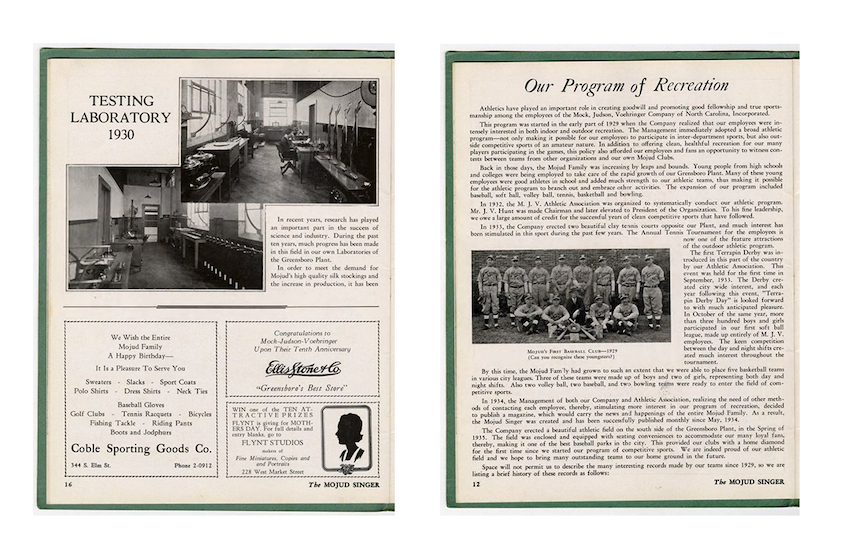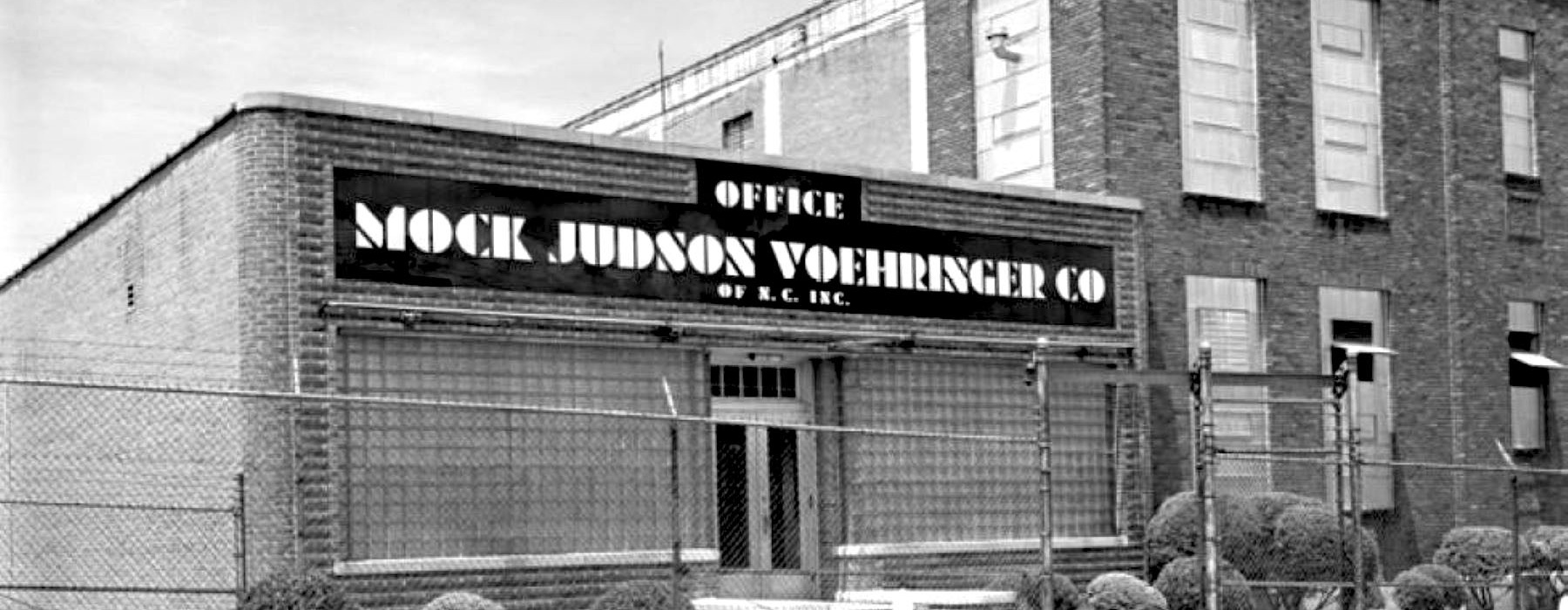Weaving MoJud Loft's past, present, and future into one vibrant tapestry
In 1926, three visionary men brought their hosiery expertise from bustling Long Island to the booming textile hub of Greensboro, North Carolina. Their venture, the Mock, Judson, Voehringer Company, would not only leave its mark on the city's fabric, but also weave a remarkable story of innovation, resilience, and changing tides.
Starting with a 10,000 square foot mill, the company quickly expanded, defying the Great Depression's grip. From 14 initial employees, their workforce ballooned to over 600 by 1929, producing four million pairs of silk hosiery annually. Unlike other mills, MJV catered to their workers' well-being with on-site amenities like a cafeteria, nurse, and even a semi-professional baseball team, the MoJud Nighthawks.

While the Cones reigned supreme in cotton textiles, MJV carved its niche in silk stockings, becoming a leader in industry trends. They partnered with DuPont to pioneer tear-resistant nylon hosiery and were among the first to embrace innovations like picot tops, chiffon knitting, and full-fashioned shaping. They weren't just makers; they were shapers of the industry.
John K. Voehringer, one of the founders, embodied the MJV spirit. He resided in opulent Irving Park, served as Chamber of Commerce President, and even had an economics professorship named after him at Guilford College. MJV wasn't just a business; it was woven into the tapestry of Greensboro life.
World War II, however, brought a twist. Silk and nylon went to parachutes, leaving MJV to switch to the less desirable rayon. But their resilience continued. In 1944, they officially became MoJud Hosiery Company, operating four mills across the US.
After the war, MoJud flourished. Nylon hosiery dominated, and lingerie and pajamas expanded their repertoire. By the 1950s, the Greensboro plant employed 2,000 – a major force in the city, rivalling even the famed Cone mills. Their nationwide advertising, featuring celebrity spokeswomen and the iconic MoJud Man, cemented their brand recognition.

But the tides changed again. In the late 1950s, Kayser-Roth acquired MoJud, eventually shutting down the Greensboro plant in 1972. Though its physical presence faded, MoJud's legacy remains. Today, the mill stands proudly on the National Register of Historic Places, a testament to the innovation, resilience, and community spirit that once thrived within its walls.
This story is more than just about a hosiery company. It's about the evolution of an industry, the rise and fall of empires, and the indelible mark businesses can leave on a city. As Greensboro looks to its future, the echoes of MoJud's spirit – the drive to innovate, the commitment to community, and the unyielding passion for excellence – are a reminder of the threads that bind a city together, weaving its past, present, and future into one vibrant tapestry.

